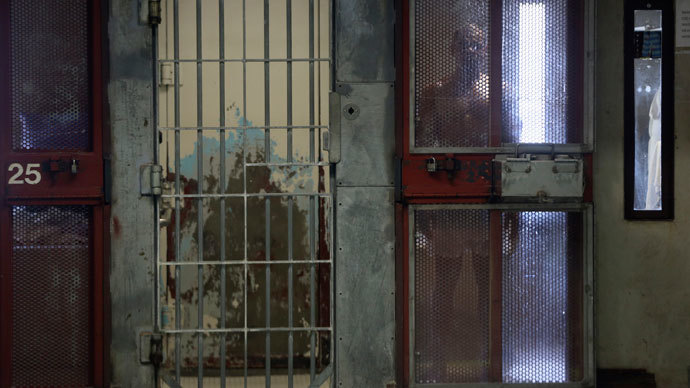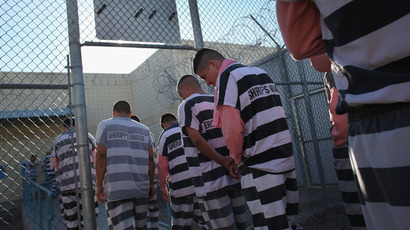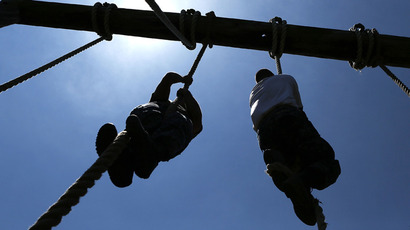Prison staff responsible for half of reported inmate sexual abuse cases – report

Allegations of sexual abuse in US prisons are on the rise, and correctional staff are responsible for half of reported incidents, according to a new Department of Justice study. Meanwhile, prosecution for such abuse is very rare.
The report released Thursday by the Bureau of Justice Statistics deals with data collected and offered by administrators at federal, state, and many county adult prisons. From 2009 to 2011, administrators reported about 25,000 allegations “of sexual victimization in prisons, jails, and other adult correctional facilities,” the report states. Yearly totals in that time span gradually increased, reaching 8,763 in 2011.
The latest three-year count is up 11 percent from the Justice Department’s previous report, which included 2007 and 2008.
Prison staff were responsible for 49 percent of incidents reported from 2009 to 2011. These are classified as staff sexual misconduct (any sexual act aimed at an inmate from staff) or sexual harassment (verbal statements of a sexual nature meant to demean).
The other 51 percent of allegations of non-consensual sex acts (most serious) and abusive sexual contacts were those between inmates. Of inmate-on-inmate sexual victimization, 18 percent of substantiated incidents resulted in physical injury. Less than one percent of staff-on-inmate victimization resulted in injury, the report said.
At the same time, the number of abuse allegations dismissed as “unfounded” or “unsubstantiated” by prison facility officials has increased. Only around 10 percent - or 902 - of incidents substantiated after investigation. This number has not significantly changed since 2005.
Prosecution for crimes committed by correctional staff are extremely rare, the report shows. Over three-quarters of prison staff responsible for sexual misconduct were allowed to resign before an investigation concluded - leaving no record of the offense - or were fired. Around 45 percent were referred for prosecution. Yet, only one percent of perpetrators were convicted.
“These findings point to a level of impunity in our prisons and jails that is simply unacceptable,” said Lovisa Stannow, executive director of prisoner advocacy group Just Detention International, according to ProPublica.
“When corrections agencies don’t punish or choose to ignore sexual abuse committed by staff members - people who are paid by our tax dollars to keep inmates safe - they support criminal behaviour,” Stannow added.
Whether sexual abuse in prisons is on the rise or there are simply more outlets for reporting victimization remains unclear. Justice Department statistician Allen Beck, who prepared the report, told ProPublica that the increase may be tied to awareness of the 2003 Prison Rape Elimination Act.
“It’s a matter of speculation, but certainly there’s been a considerable effort to inform staff about the dangers of sexual misconduct, so we could be seeing the impact of that,” said Beck.
The Justice Department’s statistics - supplied by prison administrators - contrast starkly with a 2013 survey of inmates which showed that over 80,000 prisoners had been sexually victimized by other inmates or staff in a two-year period.
“Inmates don’t report because of the way the institution handles these complaints: they’re afraid if they do report, then the staff will retaliate,” Kim Shayo Buchanan, law professor at the University of Southern California, told ProPublica.














